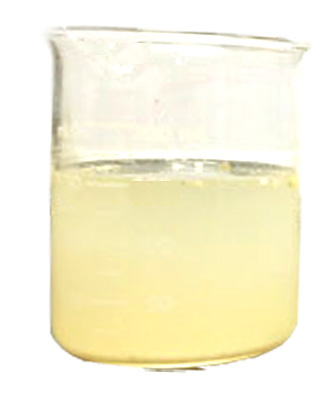The purpose of coagulation water treatment process is to removes the colloidal particles from water. The water may contain suspended matter, small or large solid particles. Sedimentation and filtration processes can removes most of the solid particles but the small particles that are remains in colloidal suspension cannot removes. If they clump together and form larger particles, then it would be possible to removes easily. But a negative charge prevents them to coagulate; as like two same magnetic poles repulse each other. They are very stable in colloidal system. If we are able to neutralize this charges, then they would be consolidate into coarse formations. For this purpose we add a chemical that produces positive charges. This chemical is known as coagulant. The positive charges of the coagulant neutralize the negative charges on the colloidal particles. As a result the particles are able to coagulate into coarse formations which are easily removable.
The process of consolidation of colloidal particles by neutralizing the charges with a coagulant, so that they can remove from the treated water by sedimentation or filtration is called coagulation. It is a vital part for drinking water and wastewater treatment.
Coagulants
Coagulants are the chemicals that are used to removes tiny particles in water. We used different types of coagulants in coagulation water treatment process. Generally, we can categories the common type of coagulant into two groups, aluminium base and iron base. The iron base coagulants include ferrous sulfate (FeSO4.7H2O), ferric sulfate, and ferric chloride. On the other hand aluminium base coagulants include aluminium sulfate (Al2(SO4)3.18H2O), aluminum chloride, sodium aluminate and polyaluminum chloride (PACl). Although some other metal salts as like titanium and zirconium are highly effective, but are costly or rare available.
Coagulation Mechanism
The colloidal particles carry electrical charges; normally negative charge. So the opposite charges coagulant is added to the water to overcome the repulsive charge and “destabilize” the suspension. Usually a metallic salt like alum is added as a coagulant to create positively charged ions. Normally 5-10% solution of coagulant is used. The alum and ferrous sulfate are hydrolysis according to the following equation-
Al2(SO4)3 + 6 H2O ↔ 2Al(OH)3 + 3H2SO4
H+ + HCO3– → CO2 + H2O
FeSO4 + 2 H2O → Fe(OH)2 + H2SO4
H+ + HCO3– → CO2 + H2O
But Fe(OH)2 does not act as coagulant, it oxidized into Fe(OH)3 by consuming dissolved oxygen in water and act as coagulant.
H2O + 2 Fe(OH)2 + ½ O2 → Fe(OH)3
This reaction proceeds easily in an alkaline medium.

Factors affecting coagulation water treatment
The process of coagulation of water depends on various factors like pH of the medium, temperature of water, coagulant feed concentration, coagulant dosage, type of coagulant, mass and initial turbidity. Moreover it is also depends on pre-treatment and type of pollutants present.
Effect of pH on coagulation
pH affects on the activities of coagulants. The optimum pH for alum coagulation is 6 to 7.5 whereas 5.0 to 8.0 are for iron. If the alkalinity is lower or higher, then the floc does not form properly. As a result, more coagulant is consumed. In this case, it is beneficial to correct the pH by adding acid or base.
Temperature
Temperature is another factor for coagulation water treatment process. It is more significant at lower turbidity. In case of alum, at low temperatures aluminium hydroxide form a strongly hydrated and very stable sol. So in winter season high coagulant are consumed. When the temperature becomes below the 5⁰C, then alum or ferric salts do not work properly. So it should be consider another coagulant like polyaluminum chloride (PACl).
Type of pollutants
The salt composition of soft water and hard water are not same. Hard water contains Ca2+ and Mg2+ ions. They can alter the charge on the colloidal particles.
Optimum dosage
It is very significant to determine the optimum dosage of a coagulant which will give the maximum clarifying effect. Insufficient amount of coagulant cannot able to destabilize properly of the colloidal particles. On the other hand higher dosage can cause excessive sludge production, corrosion and loss of money.
Type of coagulant
All the coagulants are not suitable for all cases. Different temperatures, pH, type of medium may vary the effectiveness of the coagulant. At lower temperature the polyaluminum chloride (PACl) may be more effective than the traditional coagulants like alum or iron salt. Same way, some pH range can be beneficial to use iron salt instead of alum.
Coagulation jar test
You can determine optimum process condition like dosage, pH by jar test experiments. Generally, it consist several jars filled with equal volume of water. Then test for various dosage of coagulant, pH etc.
Conclusion
Pre-filtration and sedimentation is more effective before the coagulation water treatment process. Moreover, you should follow the following sequence of chemical addition for coagulation of water; firstly add chemicals for pH correction, then add the metal coagulant, after that add the flocculent aid. But remember all the chemicals may not be necessarily for all type of water. In addition, widely many industries practices enhanced coagulation process which is also removes disinfection byproduct (DBP) precursor, color causing compounds.
Hi Dear,
Greeting.
Menjie Chemical is the main Polyaluminium chloride manufacturer in China since 1993.
Re:PAC(PolyAluminium Chloride)-Water Treatment Chemical
Industrial Grade
Drinking Grade
Pure:28%-31%
Color:Yellow Powder
Certification : SGS/ ISO
Perhaps you have stable supplier, but we want to be your second-choice,
please give us a opportunity .
Best Regards.
Ms.Nina
WEIFANG MENJIE CHEMICAL CO.,LTD
ADD:Bin hai,Lin Guang, ETDZ,Weifang 262737 ShandongChina
Phone: +8613022786025
Skype : lee.nina7
Email:Sales2@menjiechem.com
Website:http://www.menjiechem.com/